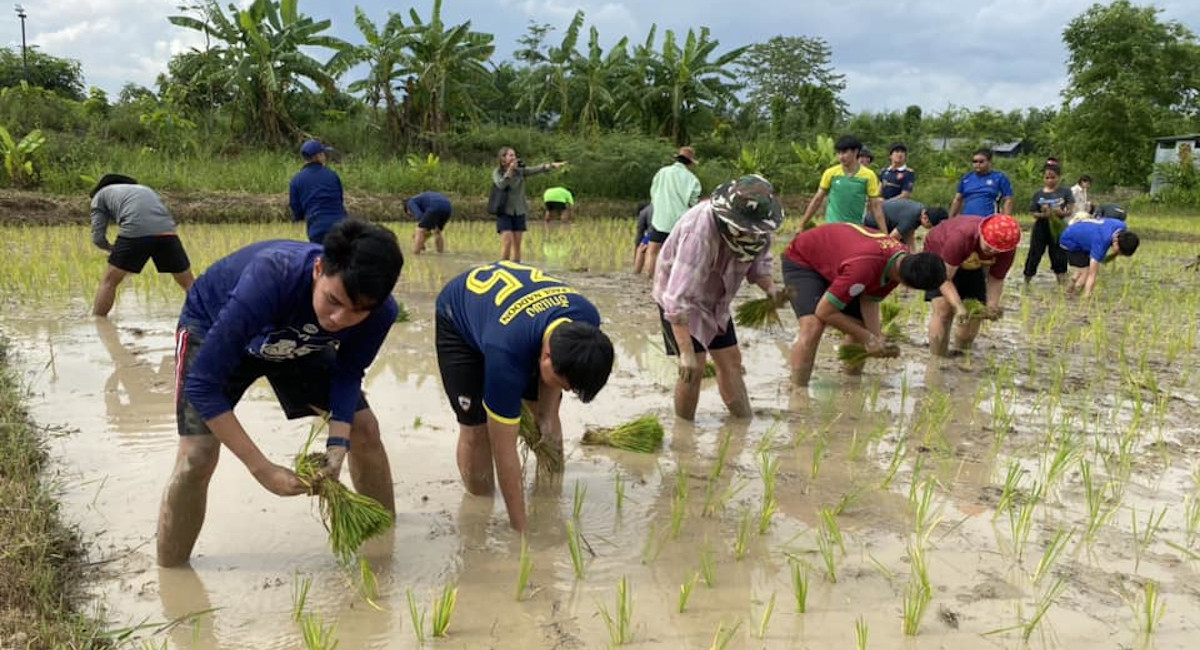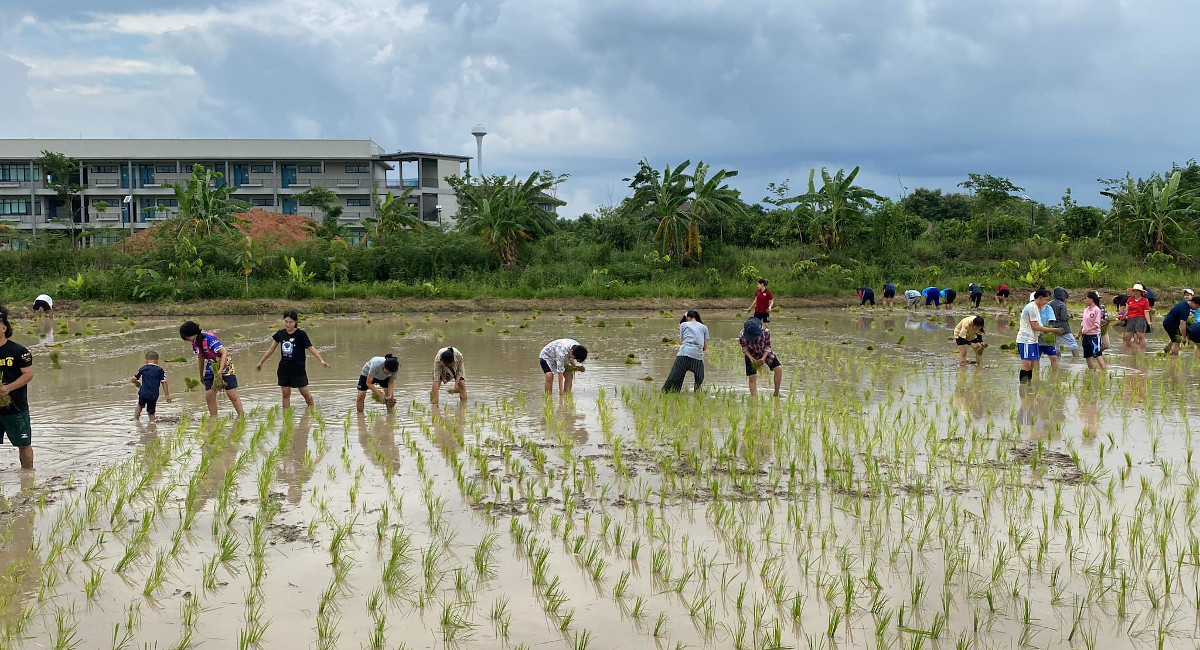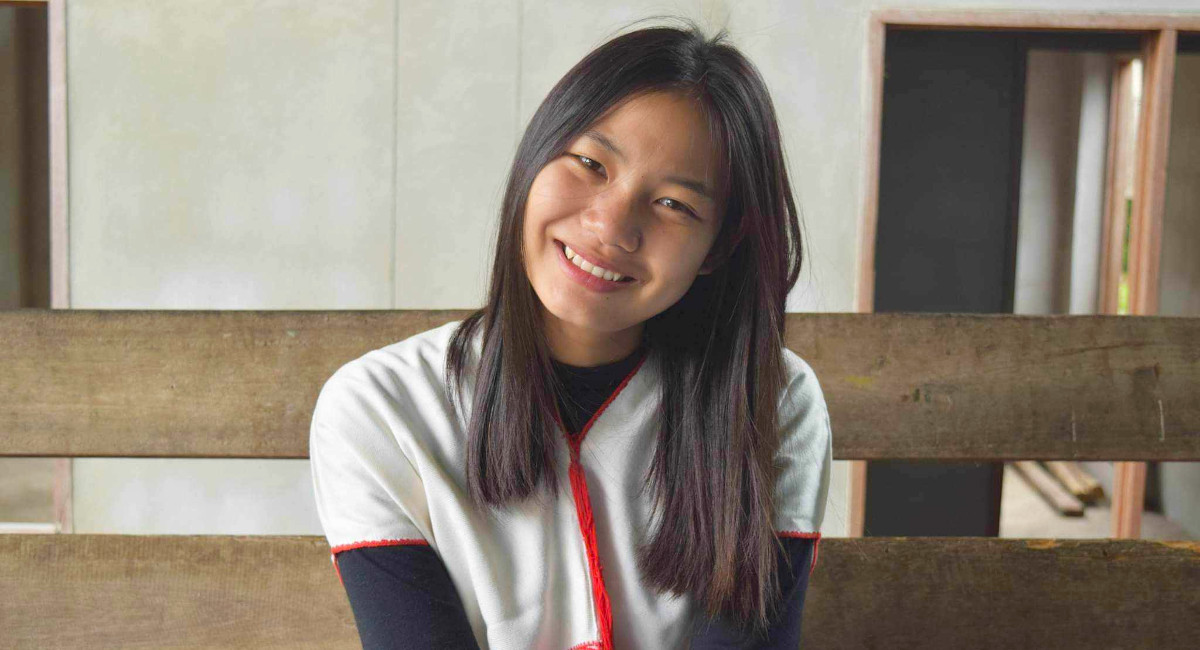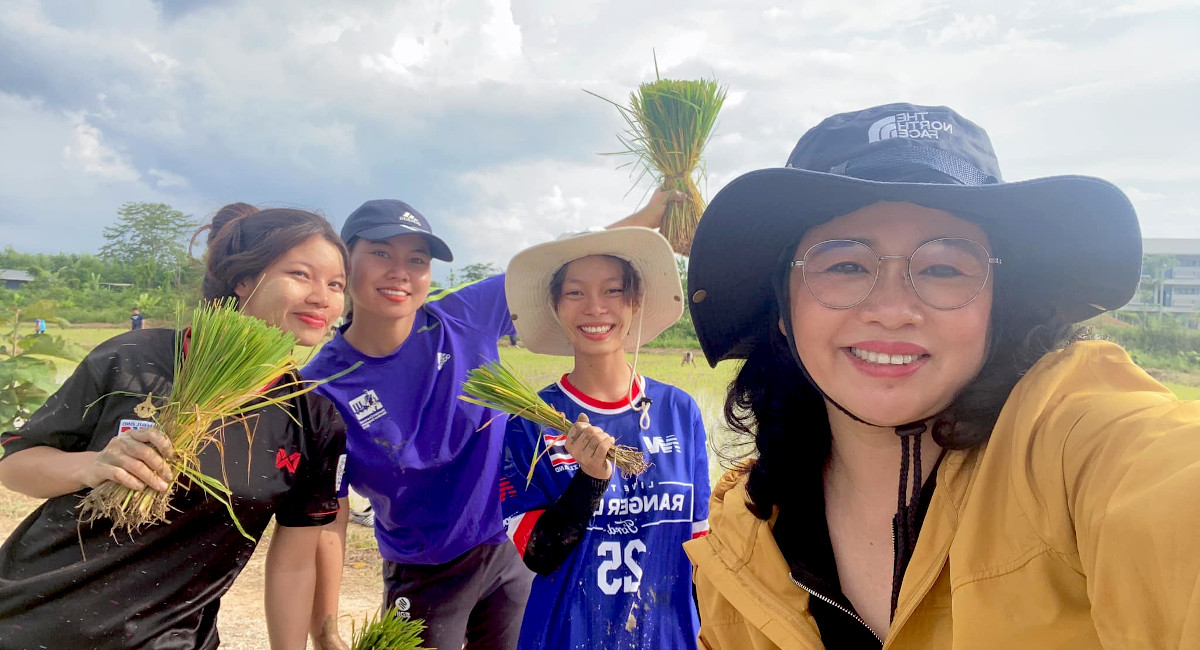
When mother is alive there is abundance.
When father is alive there is abundance.
Take care of the taro seeds.
Take care of the rice seeds.
Collect food until we have enough.
Then we will not be afraid of anything.
~Karen proverb by Chi SuwiChan
The rainy season in Thailand begins in July and lasts until October. During this time, farmers start to plant rice in their fields.
Planting rice is a fundamental tradition for Asian people. At Xavier Learning Community (XLC) in Chiang Rai, students, many of whom come from hill tribes, are encouraged to learn about agriculture. XLC is not only an educational institution supporting indigenous peoples lacking access to education; it also aims to teach them the foundation of life.

Sujaree Prapassan is a first-year student at XLC. She comes from an agricultural family in Chiang Mai, where many agricultural products are produced by people from the hill tribes. For instance, producing and selling coffee is a business that many hill tribe people do to support their families.
Sujeraa belongs to the Karen hill tribe, and her village is gaining popularity among tourists for the eco-tourism projects being developed in the area. However, she emphasises the importance of agriculture in preserving their culture.

“Planting rice is a way of preserving our original tradition,” she says. “In my hometown, villagers never buy rice; we cultivate it ourselves.”
However, Sujeraa has noticed that many young people are leaving farming in search of jobs in urban areas. This is due, in large part, to their perception of farming as unprofitable.

“Among the young generation in Thailand, farming is not a popular career choice because it yields little income and requires hard work, making it difficult to sustain a livelihood. As a result, some people reject this profession,” she says.
For Sujeraa, however, planting rice is not only about agriculture; it’s a connection to the environment and nature. She says, “It represents the relationship between human life and nature. As we use natural resources, we should also take care of them.”
 Narongdet Chuanchuenchom is a graduate of Xavier Learning Community, a Jesuit institution of higher learning serving ethnic minorities in northern Thailand.
Narongdet Chuanchuenchom is a graduate of Xavier Learning Community, a Jesuit institution of higher learning serving ethnic minorities in northern Thailand.
